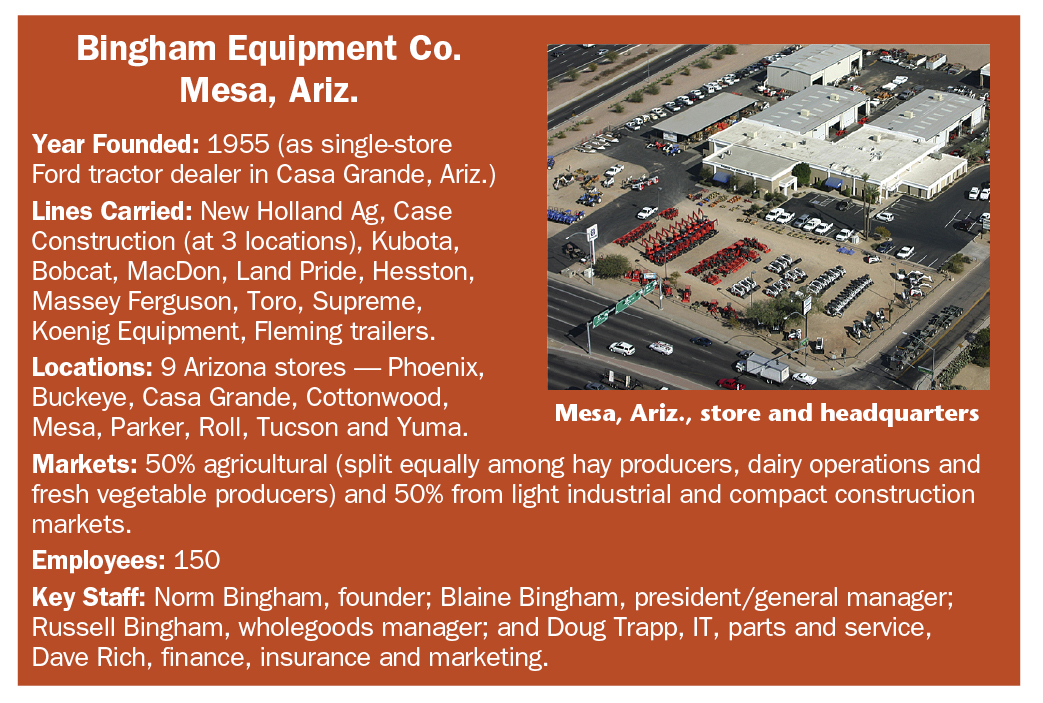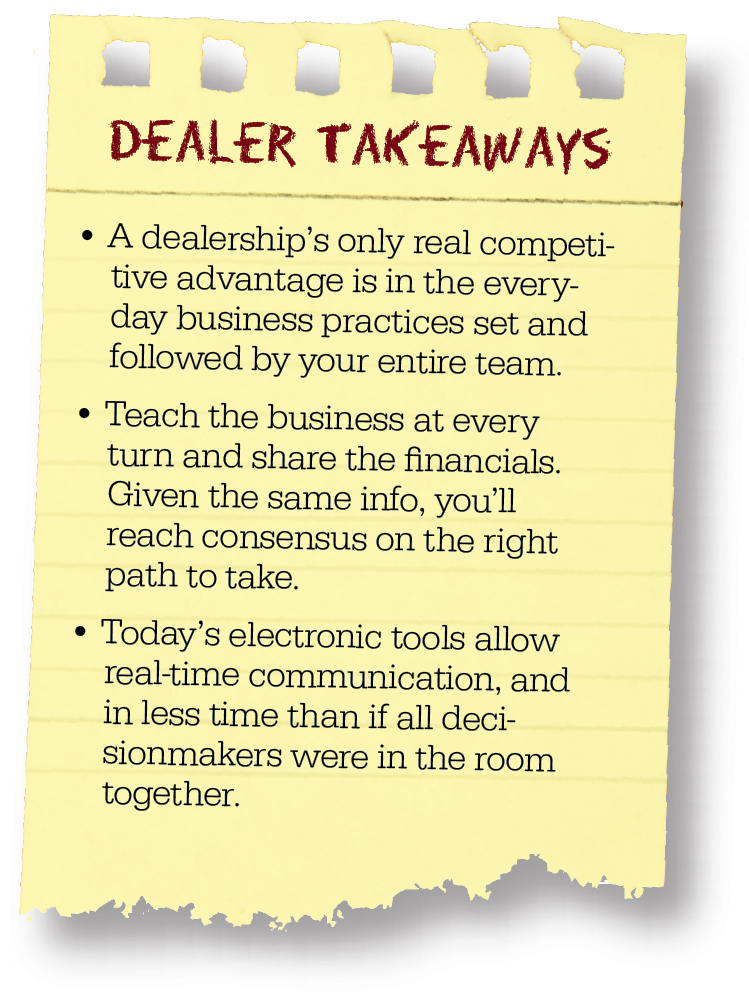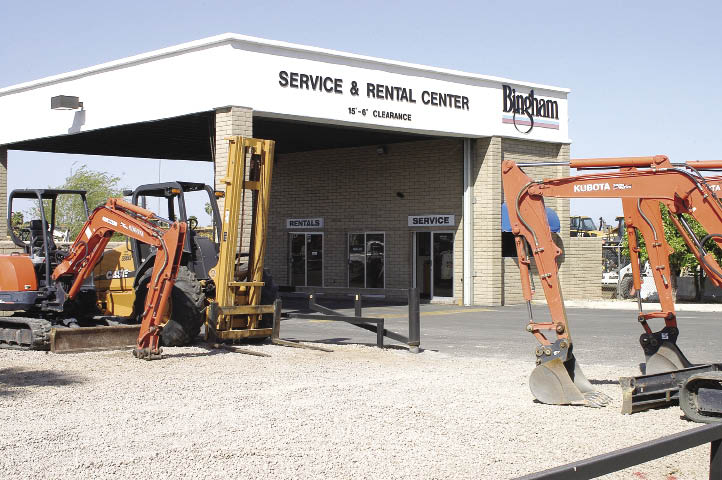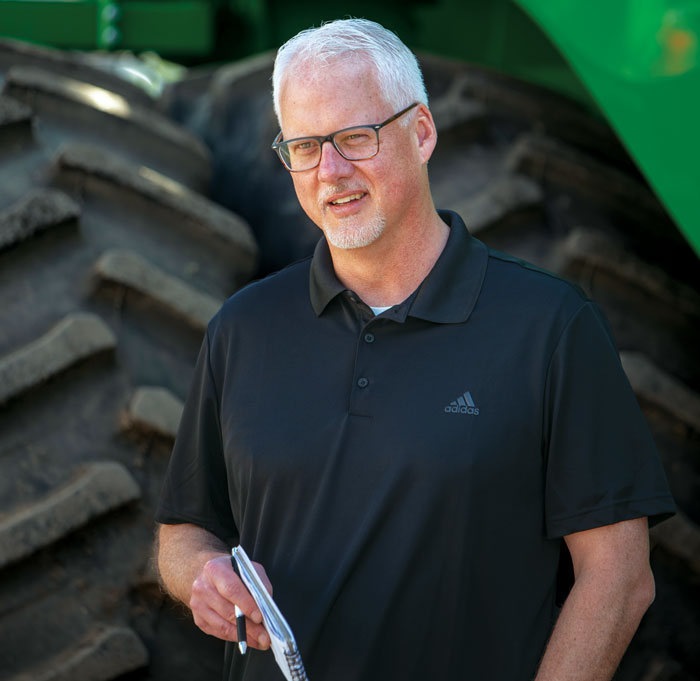Dealer Profile: Bingham Equipment Co.
Open-book management and forced communications are the difference makers for this Arizona dealership competing in a tough market.
Spend a few minutes with Blaine Bingham in Bingham Equipment’s headquarters office in Mesa, Ariz., and you’ll walk away with several impressions.

This 57-year-old president and general manager of the 9-store dealership possesses an air of humility to him and is clear that no silver bullets exist in the equipment business. He won’t underestimate any competitor. He saw early on that delegation was essential to running a growing company. And he knows that the color of the equipment itself brings no true competitive advantage anymore.
“The customer wants the best value and will partner with who can deliver that value,” he says. “To survive and compete today, you must be among the most productive and efficient — both for yourself and your customers.”

In the tough Arizona market, Bingham Equipment and its competitors have seen several industry trends before they spread to the rest of the country, including the following:
Dealer Consolidation — The merging of dealership operations was a trend seen decades ago for Bingham Equipment, which bought 5 Ford New Holland company-owned stores in 1988. The firm operated at a 10-store level for 30 years.
Dwindling Farmers — With rooftops fast replacing farmland at a steady pace (until the recession brought it to a halt), Arizona has long been unable to support an abundance of farm equipment dealers, says Bingham.
Market Changes — The important construction markets that many Arizona farm equipment dealers also depend are in a valley of volatility. “We’re operating in what is called the nation’s Bermuda Triangle for construction markets,” he says citing the area from Las Vegas to Phoenix to Bakersfield, Calif.
“There are no weak dealers in Arizona. While our 55 years of longevity helps us, there isn’t any solution that any one dealer has in its toolbox that others do not.”
The only real way to find a competitive advantage, says Bingham, are the principles that the entire business puts into practice every day.
Strategies for the Business
Bingham quickly responds to questions about the keys to running the business. He readily cites what he describes as 4 strategies for sustaining the dealership’s competitive advantage.

“A danger in a multi-store organization is that people get pigeon-holed because you don’t draw out their talents,” says Blaine Bingham, president and general manager. “I have great faith in people when you share the information and ask them to contribute.”
“We did some soul-searching on what we were good at and what things we can do to leverage our strengths,” he says. “These are the things that we as a company rally around. If you don’t set the principles for your organization, people will pick their own.”
Bingham Equipment’s 4 key strategies are:
1. Adopt a Culture of Innovation & Change. “We want change to be our friend. We try to embrace and encourage positive change, not just making change for the sake of it. The best companies test themselves to continue innovating and be the most efficient in the business. We’re driven by a desire to be the most efficient and productive equipment dealer in the market — that’s a key part of our mission.”
2. Be Customer-Focused. “Our heart must be in the right place. We need customers to have the best possible experience so they’ll come back. If we manage our customers’ equipment, they’ll come along. But we can never forget what’s important to the customer.”
3. Leverage Talent through Communication & Trust. “The more we collaborate internally, the more we will find talent and knowledge. Unless we communicate and talk to one another, we can’t take advantage of that knowledge. And the only way people will talk to one another is if there’s trust.”
4. Allocating Capital to Invest in the Right Areas. “In this business, you must know where to allocate the capital for the best ROI. We need to drive success by investing in the right areas for growth, which in our ag and construction markets, change often.”
Clearly, Bingham believes that his one true differentiator is people. He’s proud that employees participate in both 401k and profit-sharing (a program the dealership has had for 30 years) and that the average tenure across his 150-employee firm is 11 years.

Staffed with a service writer who’s the official go-to person for the customer, Bingham’s service/rental “drive-through” makes it fast and easy for customers to talk to the service department and drop off/pick up equipment.
Open-Book Dealership
Bingham first realized the power of open-book financial sharing years
ago when a talented service manager gave his notice. “We had a very good service manager at a larger branch who we’d helped get his MBA. He decided to take a university-level teaching job out of state. How we were going to continue to keep a very smooth and well-run shop managed was definitely on my mind.”
By necessity at the time, Bingham called together all representatives from warranty, service, rental and parts and the store operation to
pore over every single service order and other matters once a week.
“A year later, we still hadn’t found the right person for the service manager position, but we found that we had actually improved the shop’s profitability and customer service. That’s when I realized how we could truly leverage our knowledge through forced communication and trust.”
Bingham still hasn’t replaced that service manager. “With the right kind of structure, you don’t need to have ‘bionic’ people, which are increasingly hard to come by. We’ve proven we can get better operational results through collaboration.”
A key duty of Bingham as the company leader is forcing that communication, which are executed through a series of weekly meetings that study every line item by department and store, across the company.
Managing the Communications
While a full-time staff of 8 at Mesa headquarters oversees much of the administrative duties, and manages the companywide PFW business information system, each branch is measured by its own operational statement. Each general manager is empowered to be in charge of the store’s assets and financial performance.
With 9 locations that span a distance of 300 miles, it isn’t practical to gather all decisionmakers in Mesa.
Bingham Equipment found a solution 4 years ago through the www.gotomeeting.com system, a web-based online meeting tool where all can see the same data on their computer screens. The beauty of the system, says Bingham, is that he can connect with the staff wherever he happens to be. Participants don’t know whether he’s at his desk in Mesa or in a hotel room anywhere in the world.
The Crystal Reports application emails reports daily, and Bingham hosts a series of meetings every week, with data as fresh as the day before. “We force communication by constantly looking at the key metrics. When you meet weekly for 30-45 minutes with fully up-to-date information, it frees everyone to go back and work on the business.”
The dealership also has a voice-over IP phone system, allowing all locations to
“With the right kind of structure, you don’t need ‘bionic’ people...
we can get results through collaboration...
communicate as if their phone was just another extension in the building. In addition to the store meetings, other weekly meetings are held to examine department performance, while things like product-line reviews are held once a month. Those on the conference call instantly share problems and opportunities with their staff.
The metrics studied are the same that most equipment dealerships review. It’s the execution of the communication that makes Bingham Equipment unique. “The forced communications gets people involved, and that’s how to make an impact,” he says.
Information & Decisions
Bingham learned that many of his core tenets for the business were summarized well by Jack Stack, of Springfield Remanufacturing Corp., who penned the 1992 book, The Great Game of Business. As a result, the book has been well read by Bingham Equipment staff and is cited frequently.
Bingham preaches the importance of sharing the numbers and constantly teaching everyone how the business operates. “If we all have the same information, we’ll make the same decision 85% of the time,” he says. “When everyone is armed with the same knowledge and info, you don’t need to debate the right decision. Instead, it’s clear, and you can act quickly.
“That’s the essence of what we try to do — fostering that knowledge from everyone in the organization so that they can be just as equipped as management to make decisions. That’s our framework for getting everyone in game.”







Post a comment
Report Abusive Comment